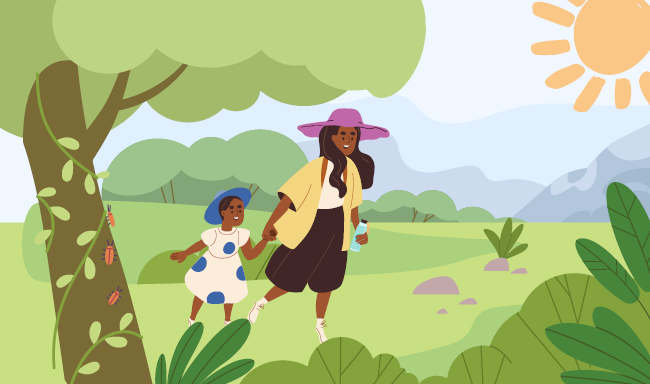
Living in the Sunshine State means our children are lucky enough to enjoy sunny weather almost all-year round. But for all its benefits, our tropical climate also has its risk. Babies and young children are more susceptible to heat-related illness compared to adults because their bodies cannot easily adapt to changing temperatures. The younger your child, the quicker they will start to show signs of dehydration or heat stress. Sick kids need special attention in hot weather, even for minor illnesses such as a cold or hay fever.
In this blog, you’ll learn how to care for your kids this summer.
How to keep your children hydrated and well nourished
- Make sure your child has easy access to plain water and encourage them to drink it, even before they become thirsty
- Avoid using ice
- Do not give your children drinks that cause dehydration - such as drinks high in sugar (soft drinks), salt and/or caffeine
- If you are breastfeeding, feed your baby more often and drink plenty of water yourself
- Give bottle-fed babies cool, boiled water between feeds
- Feed your children often with small meals and minimise hot food.
How much water should my children aim to drink?
How much water your kids should be drinking depends on their age. Children aged:
- 5 to 8 year olds should drink 5 glasses (1 litre)
- 9 to 12 year olds should drink 7 glasses (1.5 litres)
- 13 years and older should drink 8 to 10 glasses (2 litres)
If you have a baby below are the recommended liquids they should drink:
- 0–6 months: rely on breast milk, so offer breastfeeds more frequently. Water or other drinks are not needed unless recommended by a doctor.
- 6–12 months: need food and fluids in addition to breast milk, so give small amounts of cooled boiled water after or in between breastmilk feeds.
- over 12 months: need solid foods and drinks, continue breastfeeding, or give full cream milk via a cup. Offer cooled boiled water after or in between meals.
Why it’s important to monitor your child’s urine rate
- Babies: monitor the number of wet nappies. If your baby has fewer wet nappies than usual in 24 hours, see a doctor or call 13 HEALTH (13 43 25 84) for advice
- Young children: urine should be a light straw colour. Dark urine may be a sign of dehydration and indicate the need to drink. If you are concerned, see a doctor or call 13 HEALTH (13 43 25 84) for advice.
How to keep your children cool
- It’s best to dress your children in loose fitting, single layered and cotton clothing
- Keep your children cool by giving them regular lukewarm baths or showers. Do not use ice cold water as a sudden and extreme change of body temperature can cause decreased level of consciousness
- Avoid taking your children outside between 10am–3pm
- Use a suitable sunshade on your baby's stroller
- Make sure your children wear broad-brimmed hats and SPF 30+ to avoid sunburn
- Be aware of any pre-existing medical conditions, which may cause your child to be more heat-sensitive
- Children may experience nappy rash when it is hot. To avoid this, try using talcum powder and keep the area clean and dry.
Do you know the signs and symptoms of heat related illness? Visit this link here to familiarise yourself with the signs and what you can do to help.
If you’re concerned your child has heat related illness, contact:
- 3 HEALTH (13 43 25 84) to speak with a registered nurse for advice
- Contact your doctor
- Ring 000 in an emergency.